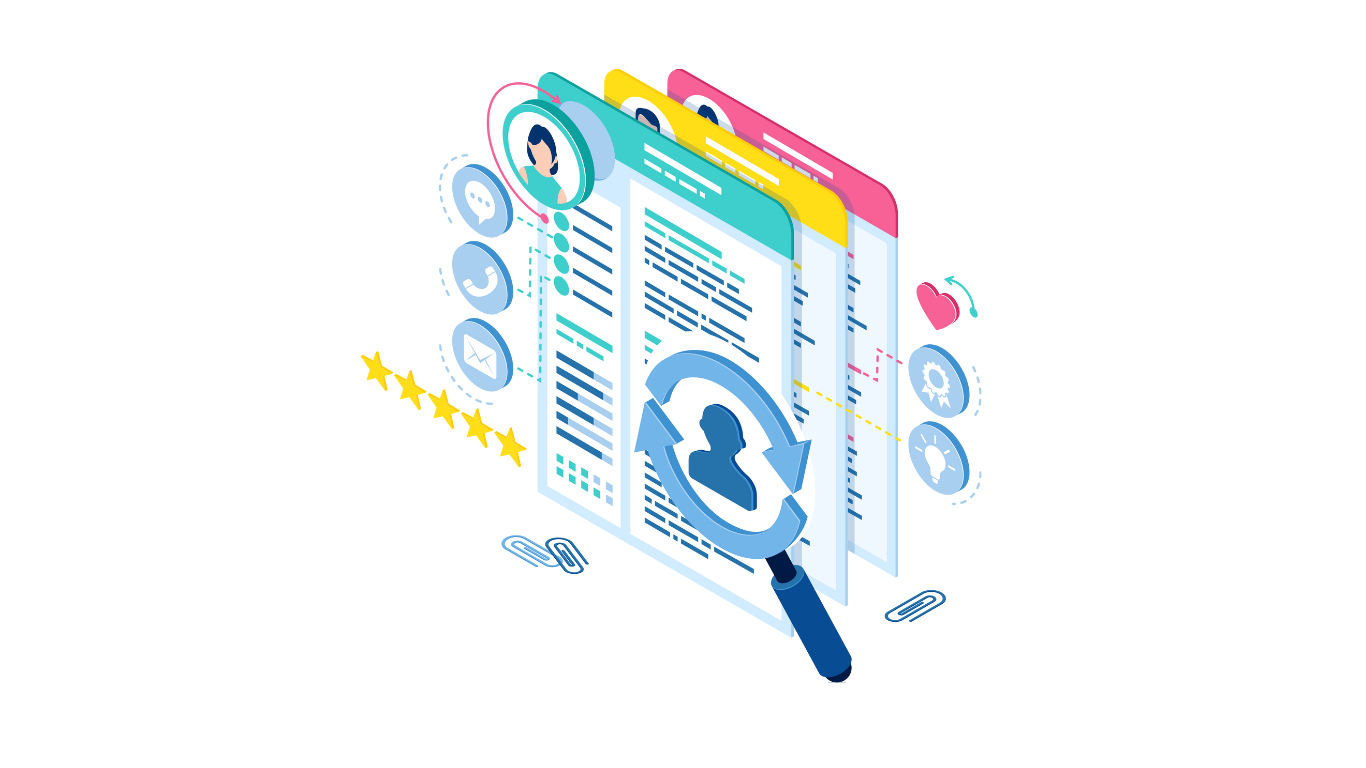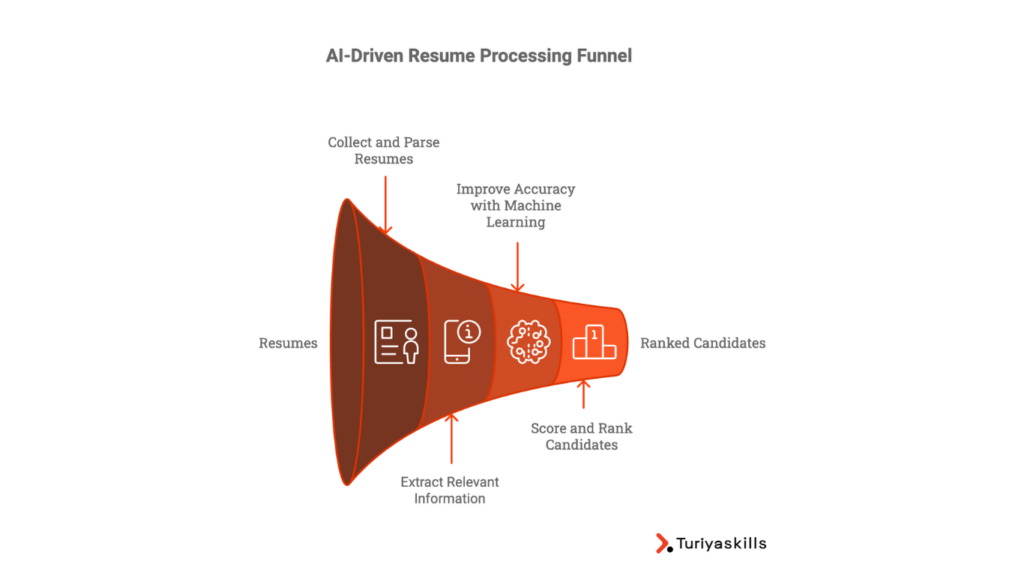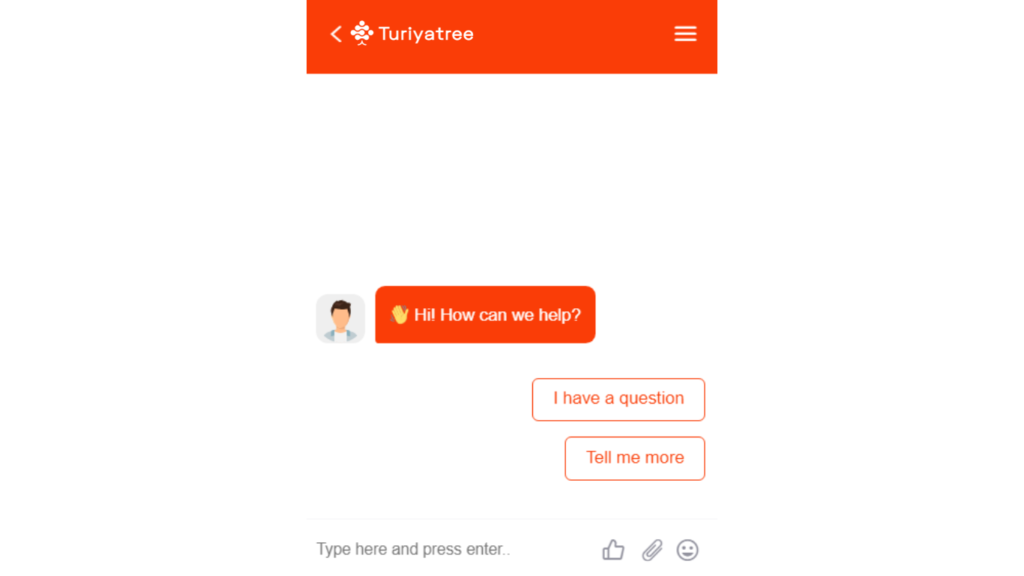In today’s competitive job market, companies are constantly seeking ways to streamline their recruitment processes and find top talent more efficiently. Artificial Intelligence (AI) has emerged as a game-changing technology in the world of hiring, offering innovative solutions to age-old challenges.
This blog post will explore five powerful ways AI can accelerate your hiring process, helping you attract, evaluate, and onboard the best candidates faster than ever before.
AI-Powered Resume Screening and Parsing

One of the most time-consuming aspects of recruitment is sifting through countless resumes to identify qualified candidates. AI-driven resume screening and parsing tools can revolutionize this process, saving recruiters valuable time and improving the quality of candidate selection.
How it works:
- AI algorithms collect and parse resumes, extracting relevant information such as personal details, educational background, work experience, and skills
- Machine learning capabilities improve accuracy over time
- Automated scoring and ranking of candidates based on relevance

Benefits:
- Significantly reduces time spent on initial screening
- Minimizes human bias in the selection process
- Improves consistency in candidate evaluation
For example, when Hilton implemented video interviews and AI features, it reduced hiring time from 42 days to just five.
AI-Driven Candidate Sourcing and Job Matching
Finding the right candidates can be challenging, especially for niche or highly competitive roles. AI can supercharge your sourcing efforts by intelligently searching multiple platforms and identifying potential candidates who may not be actively job hunting.
Key features:
- Automated searching across various job boards and professional networks
- Identification of passive candidates based on skills and experience
- AI algorithms match parsed resume data against job descriptions, generating a shortlist of candidates who best fit the requirements.
Advantages:
- Expands the talent pool beyond active job seekers
- Saves time on manual searching and outreach
- Improves the quality of candidate matches
LinkedIn, for instance, uses AI algorithms to match job seekers with relevant job postings by analyzing profiles, skills, and job descriptions.
AI-Powered Chatbots for Initial Engagement

First impressions matter, and AI chatbots can provide a responsive and engaging initial interaction with potential candidates. These intelligent assistants can handle a variety of tasks, enhancing the candidate experience and freeing up recruiters’ time.
Capabilities:
- 24/7 availability to answer candidate queries
- Automated scheduling of interviews
- Initial screening through pre-set questions
Impact:
- Improves response times and candidate engagement
- Reduces administrative workload for recruiters
- Provides a consistent and professional first point of contact
AI-Assisted Interview Processes with Remote Proctoring
AI can play a crucial role in enhancing the interview process, from initial assessments to final decision-making. By leveraging AI technologies, including remote proctoring, companies can conduct more thorough and objective evaluations of candidates, especially during large-volume hiring and campus recruitment drives.
AI applications in interviews:

- Video interview analysis (facial expressions, tone, body language)
- Auto-generated assessments based on job descriptions, evaluating candidates’ skills and competencies specific to the role
- AI-powered testing platforms for automated grading and analysis of candidates’ assessment performances
- AI-powered remote proctoring for secure and efficient large-scale assessments
Advantages:
- Provides data-driven insights to supplement human judgment
- Reduces time spent on preliminary interviews
- Enhances objectivity in candidate assessment
- Ensures integrity of online assessments for large groups
AI-powered remote proctoring systems are particularly beneficial for handling large-volume hiring and campus recruitment drives. These systems can monitor multiple candidates simultaneously, detecting suspicious behavior and ensuring the integrity of the assessment process.
Predictive Analytics and Feedback Generation for Better Hiring Decisions
AI-driven predictive analytics can help recruiters make more informed decisions by analyzing historical hiring data and identifying patterns that lead to successful hires. Additionally, AI can generate comprehensive feedback for both candidates and employers.
How it works:
- Analyzes past hiring data to identify success factors
- Predicts candidate success and cultural fit
- Compiles assessment results and provides detailed feedback to both candidates and employers
- Provides data-driven recommendations for hiring decisions
Benefits:
- Improves quality of hire
- Reduces turnover rates
- Enhances long-term employee performance
- Facilitates informed hiring decisions
By leveraging predictive analytics and AI-generated feedback, companies can make more confident hiring decisions based on data-driven insights rather than gut feelings alone.
Conclusion
Incorporating AI into your recruitment strategy can significantly speed up your hiring process while improving the quality of your hires. From initial candidate sourcing to final decision-making, AI offers powerful tools to enhance every step of the recruitment journey.
Consider implementing an AI-driven recruitment workflow that integrates various technologies, including resume parsing, job description data matching, auto-generated assessments, AI-powered testing, and results and feedback generation. This integrated approach can streamline your entire hiring process, making it more efficient and effective.
The integration of AI-powered remote proctoring for large-volume hiring and campus recruitment drives is particularly noteworthy. This technology allows companies to efficiently assess a large number of candidates simultaneously, ensuring the integrity of the process while significantly reducing the time and costs associated with traditional recruitment methods.
As you consider implementing AI in your hiring process, remember that while these technologies offer tremendous benefits, they should complement rather than replace human judgment. The most effective recruitment strategies will blend AI’s efficiency and data-driven insights with the irreplaceable human touch that builds genuine connections with candidates.
By embracing AI in your hiring process, you can stay ahead of the competition, attract top talent, and build a workforce that drives your company’s success in the digital age. Whether you’re conducting large-scale campus recruitment or seeking to streamline your regular hiring processes, AI-powered solutions offer the tools you need to hire better, faster, and more efficiently.







